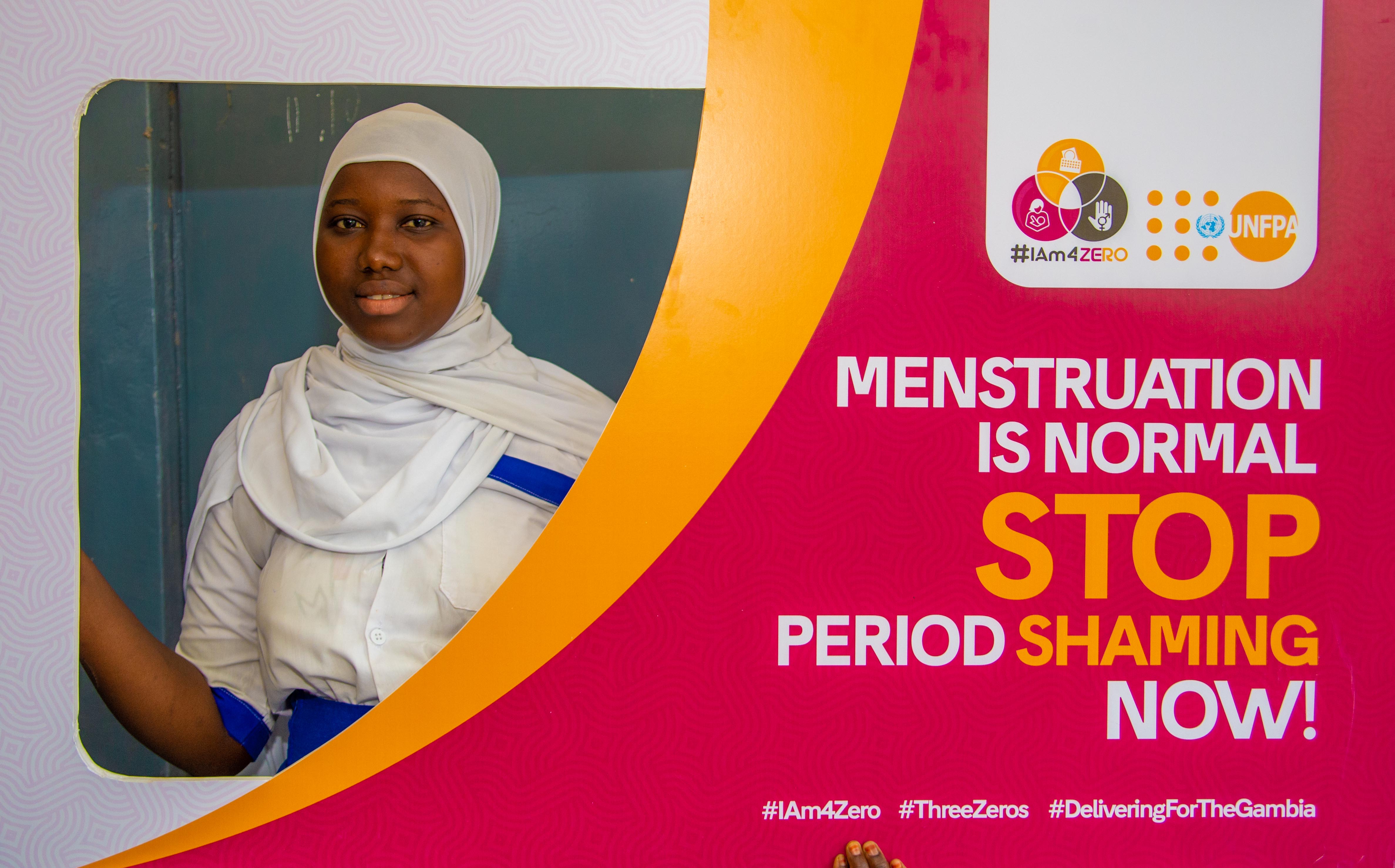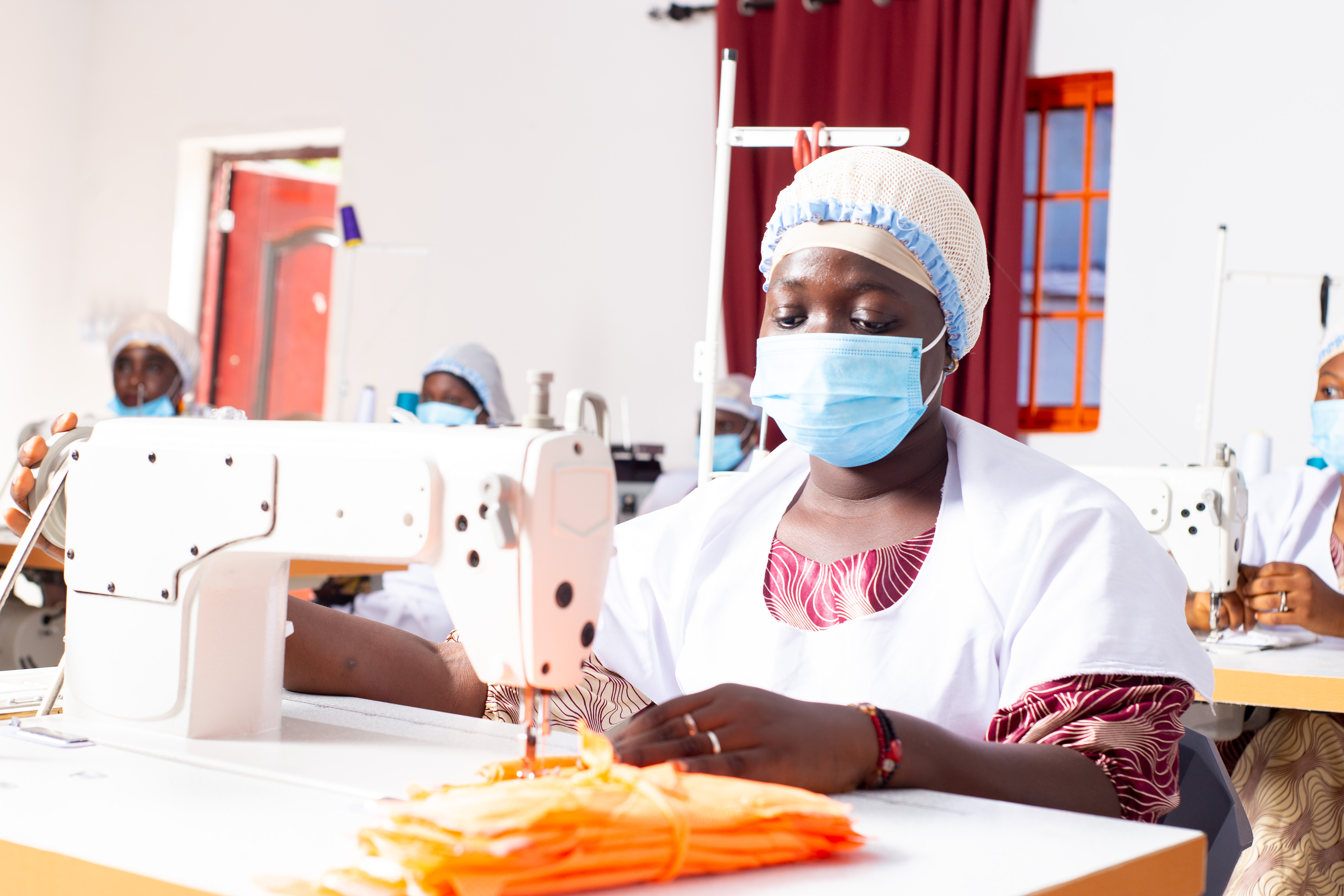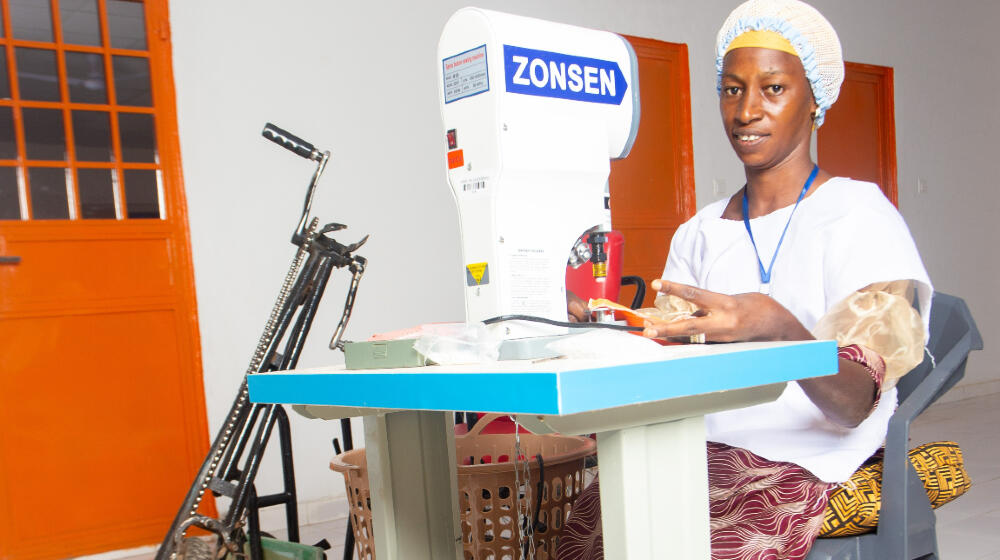The challenges and daily lived negative experiences of women and girls in The Gambia are majorly interlinked and relatable among the same population group across communities. Of these numerous challenges, menstrual health and hygiene management is a concern for many as access to information and resources to ensure safe and dignified menstruation is not always guaranteed for all. One would expect that experiencing a natural biological occurrence such as menstruation should not even be a cause for debate or conversation, since menstruation is normal. However, for many women and girls, this occurrence is the root cause of shame, stigma, exclusion and violence in their homes, schools, places of work and other social settings. Thus, for many women and girls, menstruation is only a nightmare and an unpleasant experience.
Imagine waking up to soiled clothes on a school day for seeing your first period. Now imagine gathering unhygienic pieces of rags and any other material at your disposal to sustain you for the next few days, coupled with the pressure of concealing the fact that your body is adjusting to new biological changes, because society deems periods unclean and a taboo to converse on. This is the nightmare and the source of unpleasant experiences for many women and girls.

Lack of access to menstrual health and hygiene products such as sanitary pads is a major factor which keeps girls out of school, perpetuates menstruation related stigma and increases inequalities. According to a survey supported by UNFPA in the Lower River Region of The Gambia in 2020, 3 out of every 10 women and girls who participated in the survey reported that they use rags/old pieces of cloth to control blood during menstruation. This exposes them to health and hygiene hazards which can have adverse immediate and long-term consequences on their sexual and reproductive health.
Interestingly, to arrive at a sustainable solution to address the limited access to sanitary pads, low-income generation capacities of women because of climate induced conflicts, we must consider climate-friendly and sustainable products.
Fatoumatta Fatty, 31 is a person living with disability and one of 15 women currently trained to produce reusable sanitary pads at the production centre under the Women Empowerment and Peacebuilding Initiative (WEPBI).

Coming from a community where most women rely on farming to earn a living and feed their families, Fatoumatta is unable to participant in communal farming activities to support her family based on her physical challenges. However, with the establishment of the pad production center in her region, she now has a stable source of income and can promote the realisation of menstrual health for all women and girls in her community.
“Every morning I am excited to arrive at the centre and start working because I believe every minute spent doing this job enables me to contribute towards the health and wellbeing of women and girls in my community” a passion Fatoumatta shares with us.
For her, every morning is an opportunity to live her dream of being self-sufficient and helping to provide for her family. Riding her adaptive bike to the menstrual pad production centre and producing as many finished products as she can for the day lives her fulfilled.
Prior to benefiting from this initiative, Fatoumatta resorted to selling recharge cards and mobile credit to sustain herself. The income was minimal and could barely sustain her personal needs including being able to afford sanitary pads for herself and for the girls in her family. Today, combined with the pad production, Fatoumatta earns enough to support her husband while also being a voice for the promotion of safe and dignified menstruation in her family and community.
“I do not have daughters but the girls in my extended family and community will no longer face difficulties in access sanitary pads while on their periods. I am thrilled that I am able to provide such a solution for them through my training and engagement at the pad production center” she mentioned.
The WEPBI is an initiative of UNFPA funded by UN Peacebuilding as part of several investments geared towards addressing the gendered impact of climate change and climate-induced vulnerabilities of women in Gambian communities. The initiative will contribute towards providing women farmers with alternative sources of income to address their vulnerability to climate induced conflict over access to and control over land. The production center provides innovative solutions geared towards promoting the use of climate-friendly products and diminishing dependency on natural resources through income diversification and climate-friendly solutions.
***
Media contact: Haddy Jonga – Programme Analyst, Communications jonga@unfpa.org


